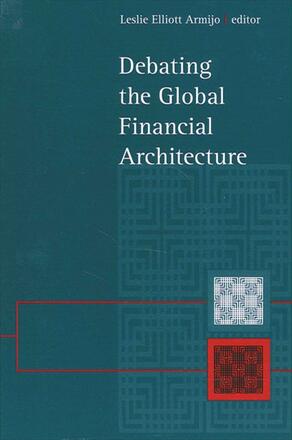
Debating the Global Financial Architecture
Alternative formats available from:
Looks at alternatives to international financial institutions such as the IMF and World Bank.
Description
Debating the Global Financial Architecture opens up the contemporary debate surrounding the reform of the "global financial architecture. " Economists and political scientists explore the economic and technical content of alternative global financial regimes as well as the political processes through which such changes are negotiated. The contributors, though diverse, jointly fear that rapid removal of the remaining controls on private international financial transactions risks systematic crisis. By initiating a cross-disciplinary discussion, they hope to see the politics of global financial design examined more honestly, yet without discarding or devaluing a solid economic analysis of global money and investment flows.
Leslie Elliott Armijo is Visiting Scholar at Reed College and the editor of Financial Globalization and Democracy in Emerging Markets.
Reviews
"In Debating the Global Financial Architecture, a dozen distinguished political scientists and economists assess the state of the contemporary international financial system. They eschew facile policy recommendations in favor of serious analyses of global financial relations, and of the broad implications of the reform proposals policymakers have been wrestling with. The book contains an intelligent and integrated set of essays that will be of interest to all those who want a better understanding of current international financial policy debates. " — Jeffry A. Frieden, Harvard University
"The debate over the international financial architecture has been contentious, ranging from those who would abolish the International Monetary Fund in the name of free markets to advocates of capital controls. This excellent volume gathers a prestigious and well-balanced group of economists and political scientists to review the issues, including regional perspectives from Latin America, Europe and Asia. Timely and useful. " — Stephan Haggard, University of California, San Diego